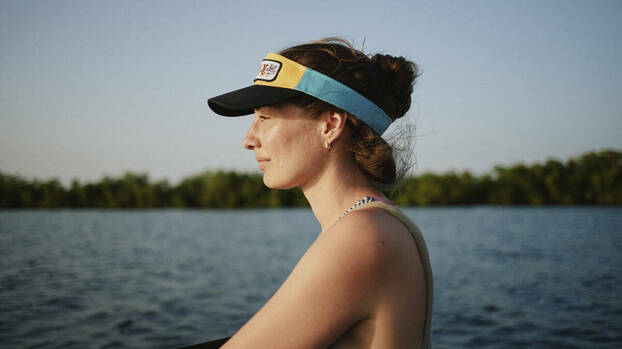
When I started making this film, I was buying vegetables from the supermarket and happily munching down on unwashed lettuce leaves. But by December 2021, when we hit post-production and I started piecing the film together in the edit, I was having extensive phone conversations with the supposedly “organic” farmers at a local Cape Town farm, insisting to their bewildered manager that I needed to find out exactly what kind of seeds they were using and thus what other poisons they put on their crops.
Andréa Gema is a South African filmmaker and the director of The Last Seed. Having worked in the film industry for over ten years, she takes a special interest in ensuring that complex stories are told in an engaging and refreshing way.
The making of this film has changed my worldview as well as my buying habits, opening my mind to the far-reaching consequences of corporate greed in the lives of millions. As soon as I understood the gravity of the situation, I started a seed collection. I excitedly exchanged seeds with the small-scale food producers we met along our journey around the African continent, from Senegal to Zanzibar. I felt profoundly inspired by the stories of those we met and hoped that when we got back home, we could do justice to their wisdom and foresight by accurately depicting the seriousness of the issues at hand.
The cultures we encountered also mesmerized me. I remember the moment the team and I stumbled into the Ékonkone dance ceremony deep in the Cassamance jungle: we felt so overwhelmed by the wonder of the moment that we stumbled over one another, slammed an iPhone in the car door, and grew slightly hysterical with joy as the music rose to a fever pitch. It was hard to concentrate on filming because we also wanted to dance. Someone even cried, I found out later. We knew we didn’t have long with the light, and yet everything was so wonderful to behold. It was a memory of a lifetime for most of us.
If I had longer in each location, I would have told the stories of the locals more fully, because there was clearly so much to tell, and I could feel the historical and cultural significance of it all. That feeling, along with the things I learned about traditional African cinema inspired me to include the radio sequences in the film — a call back to old-fashioned storytelling, parable and, fable — in an effort to do more than just list the facts of the situation. When the facts are so bleak, it’s important to focus on the beauty, the culture, the plants, the insects, the systems that actually work, and most importantly, the people who make them work.
To me, the film doesn’t have a clear genre. I’ve been calling it an “edu-science musical” because of the way that music has woven itself into everything, driving home the messaging and punctuating the heaviness of the global situation we are faced with. We didn’t plan a single musical sequence. Every single one happened spontaneously and was initiated by those we were filming, while the cameras were already rolling or before we even got there. There was a rawness to the filming process that amazed me on the ground, but which resulted in over 30 terabytes of content, which later took us months to sift through.
Yet in the end, the message of this movie has planted itself in my brain, as I hope it will do for all its viewers. We set out to be subtle yet convincing, to be respectful and yet urgent, to combine the German logic of our funder with the vibrancy of our own African cultures — a unique mix of flavours which I feel has resulted in a one of a kind film that drives a deep dagger, if you will only listen closely.